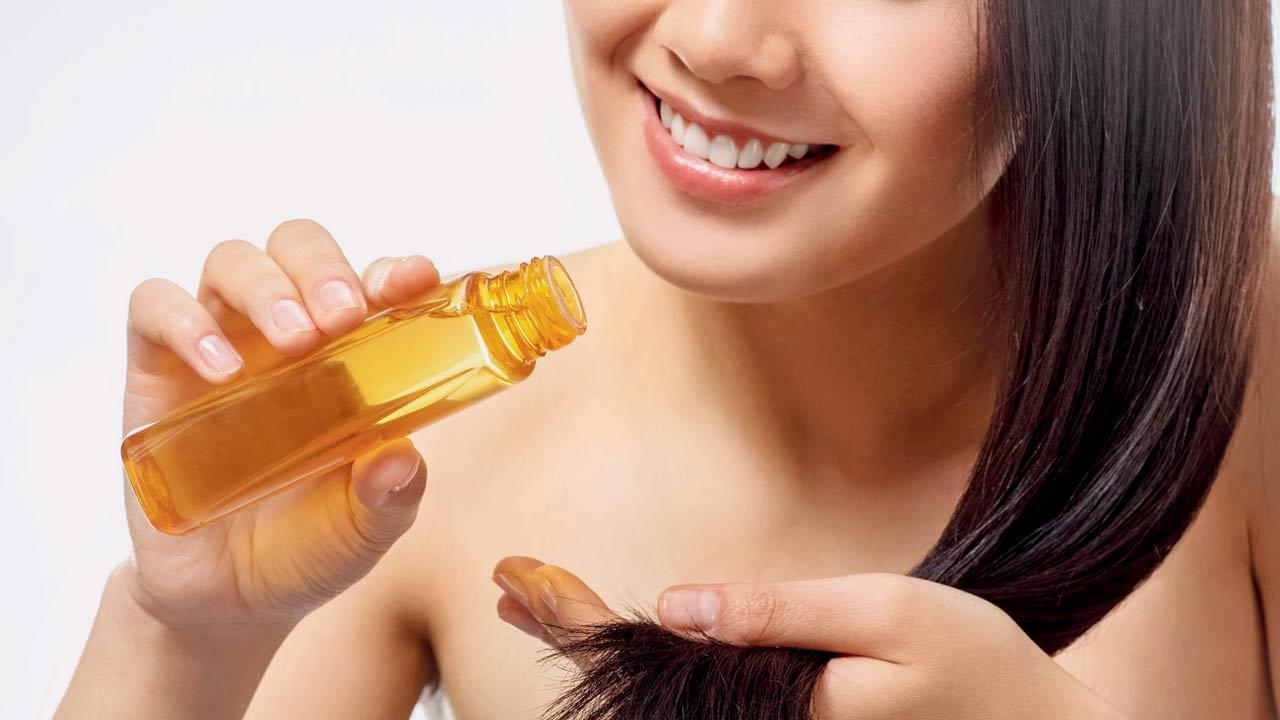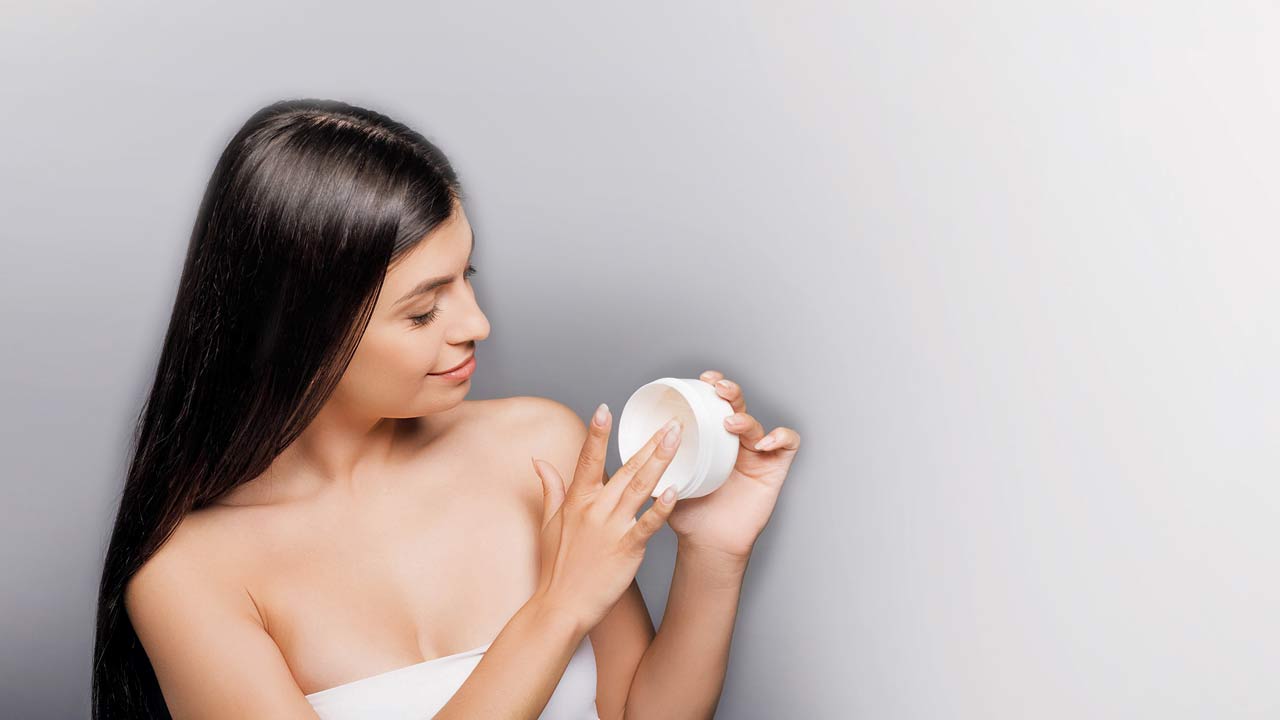Bond repair treatments come bearing the alluring promise of restoring dry, damaged and dull hair, but can be overwhelming to navigate if you are a haircare beginner

Representation Pics
In Thursday’s episode of ‘Beauty is Pain’, a study published in The New England Journal of Medicine in March this year, revealed that hair smoothening and straightening treatments can cause long-term kidney damage. The culprit, doctors say, is the glyoxylic acid used in these treatments, which can adversely affect kidney health. This revelation has prompted beauty lovers to frantically scramble for alternatives (preferably the DIY or at-home variants) and several brands to step up to the charge with less intensive products and routines.
ADVERTISEMENT

While consistency is important, do not overuse the treatment
This writer, in particular, had been struggling with dry, damaged strands and used to often get recommendations by well-meaning stylists to opt for hair ‘botox’ treatments. However, we chose to incorporate a pre-wash hair serum that significantly improved the hair’s appearance and texture, and even had our stylist questioning if we had been sneaking protein treatments behind their back. It also helped that the serum in question was much more affordable than most salon treatments or salon-specific products. And that got us questioning: Can at-home bond repair treatments replace salon sessions for those seeking a healthier mane and not poker-straight strands?
Bonding with the best
“Hair is composed of a protein called keratin. Chemical treatments and heat styling can damage the keratin’s internal disulfide bonds, leading to breakage, frizz, and dullness. This is where bond-building haircare steps in, promising to repair this damage,” explains Dr Madhu Chopra, a cosmetologist and managing director of Studio Aesthetique. Dr Chytra V Anand, a celebrity cosmetic dermatologist and founder of SkinQ is also optimistic about the efficacy of these at-home treatments.

She says, “As a dermatologist, I can confirm that there is scientific merit behind the claims made by these products. Bond-building products, such as those containing patented ingredients like bis-aminopropyl diglycol dimaleate [found in products like Olaplex], work by targeting and repairing these broken disulfide bonds. By re-linking these bonds, the products help to restore the hair’s structural integrity, making it stronger and more resilient to damage.” Further, products containing strengthening ingredients such as keratin, hydrolysed proteins and amino acids can enhance the hair’s structure, while nourishing ingredients such as hyaluronic acid, argan oil, coconut oil, and aloe vera further support healthy hair growth.
Breaking it down
Bond repair treatments contain components that imitate the natural process of bond formation to make the hair strands stronger. While the types of treatments range from masks to oils and serums, it’s important to choose your products based on your specific hair type and the kind of damage you are grappling with. For instance, if you have very fine hair, a leave-in product will add to your woes by weighing your hair down; a mask or a conditioner that washes off is better suited to this hair type. For coarse and curly hair, a leave-in conditioner or oil may work better. “Over-the-counter bond-building products in India can be a double-edged sword,” warns Dr Chopra. “Hair is unique — its porosity, texture, and needs vary between individuals. Applying generic products might not address the specific damage or even worsen it,” she says, recommending that seeking the advice of a dermatologist before beginning a new treatment is essential.

Dr Madhu Chopra and Dr Chytra Anand
Dr Anand also acknowledges the emergence of brands across different price points that have their own versions of bond-building treatments, which often incorporate unique blends of active ingredients. “The efficacy of these products largely depends on their formulation and the concentration of active ingredients. It’s essential to look for products that have been clinically tested and proven to repair hair bonds effectively,” she notes.
Back it up
When designing your hair care regimen, avoid products with harsh ingredients such as sulphates, parabens and alcohols, which can further strip your hair of its natural oils, says Dr Chopra. Additionally, consume a diet rich in vitamins and minerals, particularly biotin, vitamin E, omega-3 fatty acids, and proteins, which are essential for healthy hair growth and strength. Dr Anand recommends using moisturising shampoos and conditioners, as well as deep conditioning treatments and hair masks to maintain your hair’s moisture balance. Minimise the use of heat styling tools and chemical treatments, and never skip using a heat protectant spray. Finally, trim your hair regularly to remove split ends and prevent them from traveling up the hair shaft, which can cause further damage, Dr Anand signs off.
The haircare checklist
Dr Anand recommends paying heed to the following parameters before using at-home bond-building products.
>> Patch test: Always perform a patch test before using a new bond-building product to ensure you do not have an allergic reaction to any of the ingredients.
>> Follow instructions: Adhere strictly to the product instructions for optimal results. Overuse can sometimes lead to product build-up, which might weigh the hair down.
>> Consistency: Bond repair treatments should be used consistently but not excessively. Over-reliance without addressing underlying damaging practices may not yield long-term benefits.
 Subscribe today by clicking the link and stay updated with the latest news!" Click here!
Subscribe today by clicking the link and stay updated with the latest news!" Click here!







